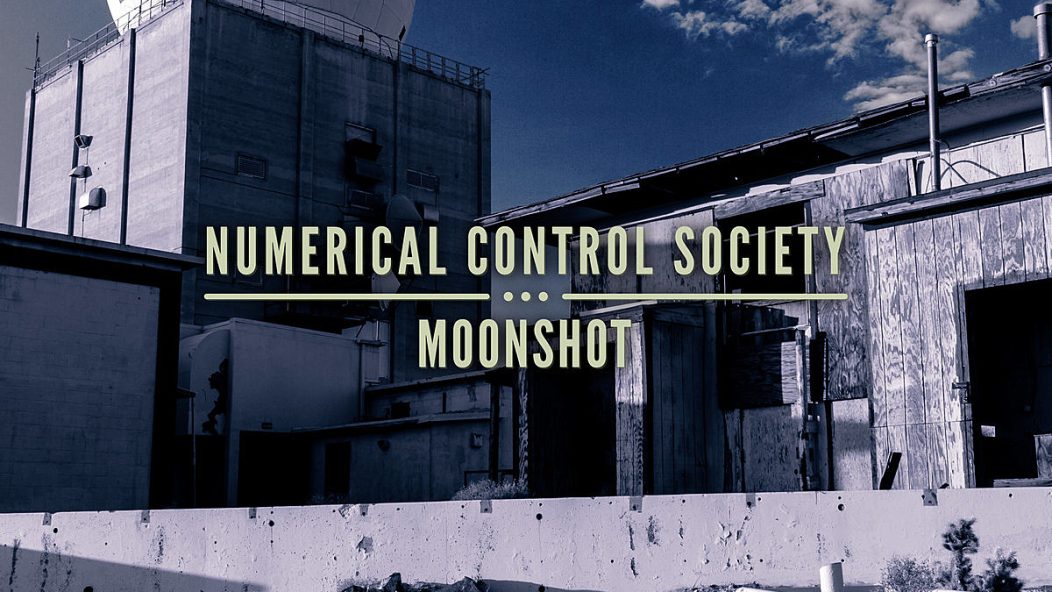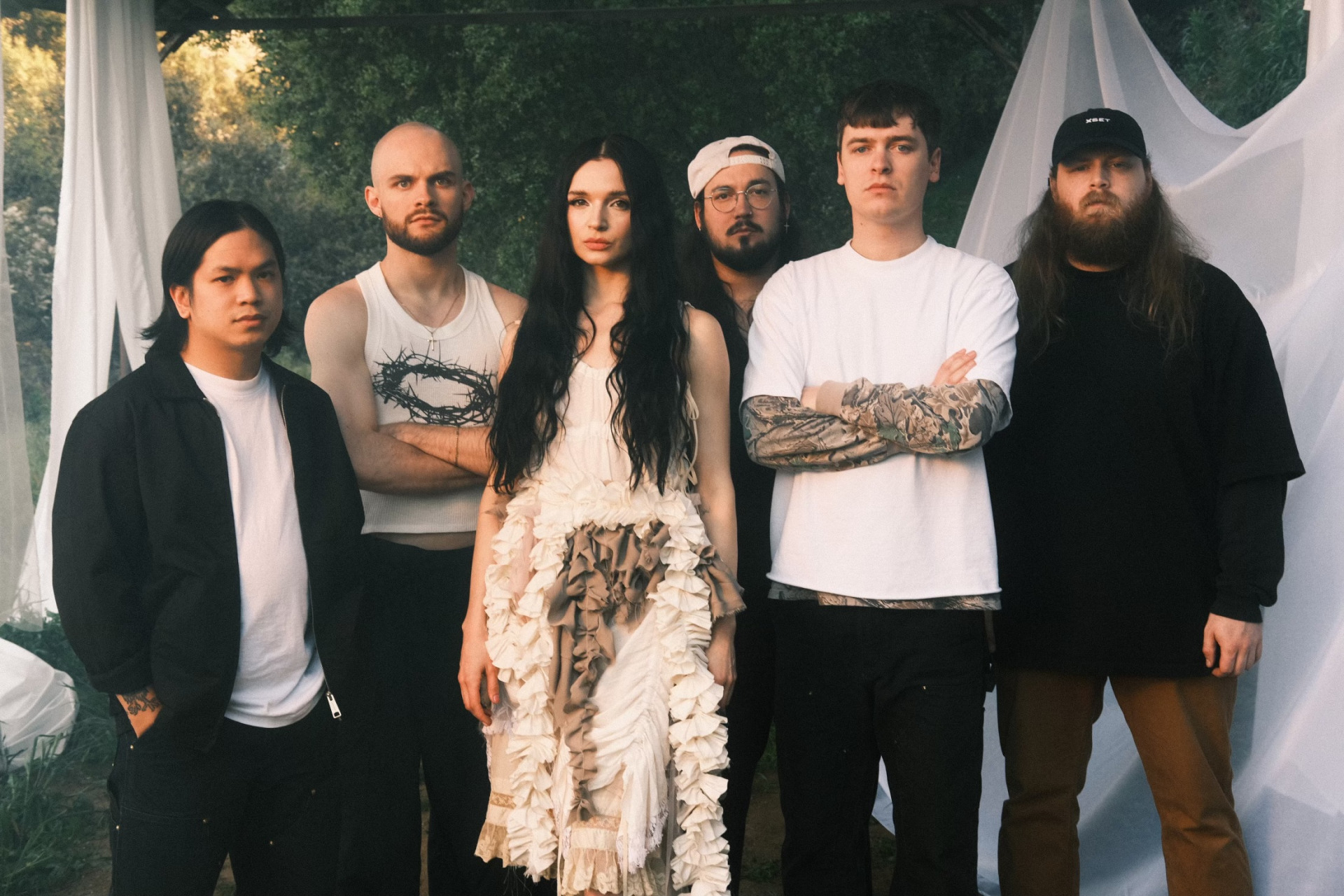
Numerical Control Society Finds Progressive Stoner Bliss on "Astral Hobo" (Interview + Track Stream)
Doom metal and progressive rock seem like vastly separate worlds, but their ethereal borders collide with a surprisingly large overlap. Though heavy, lumbering riffs are perfectly fine arranged with devastating simplicity, they also prove to be an excellent anchor in more unusual contexts, played in strange time signatures or unveiled at climactic junctions. This is the realm that Numerical Control Society explores, pursuing a progressive-minded form of instrumental heavy music with almost scientific zeal. Their last EP Circular Reasoning for Squares was a three-track proof on the concept, hurling out incredibly burly grooves flush with a certain wild-eyed madness that made it clear vocals were not necessary, and would in fact only distract from the riffs and weaken their argument.
On their upcoming EP Moonshot, the band further diversifies their sound, incorporating more quiet parts and more progressive rock influence; they amass a cloud of intrigue around their heavy core. The exquisitely-sculpted guitar and bass tones that made Circular Reasoning for Squares are still a heavy participant in the sound, especially on lead single “Astral Hobo,” but they’re counterweighted by an inquisitive, introspective sense of atmosphere that unites all four tracks into a powerful suite.
We spoke to guitarist Matt O’Dell about the new EP – stream lead single “Astral Hobo” below and check out the interview.
…
…
It’s been four years since your last EP, Circular Reasoning for Squares. What’s new with Numerical Control Society in the meantime?
Matt O’Dell: We all lost a lot with COVID, and besides just losing time and momentum, our guitarist Sam moved overseas. After the fun of Craigslist emails and auditions, we finally found Kyle Billingsley to take his place, and he has been a great addition to the band.
The band’s aesthetic conveys this sort of conspiratorial, secret-society feeling, but as I saw on your Facebook page, the logo and name come from an actual organization. Can you explain the name’s origin?
You are right, the name came from an actual organization called the “Numerical Control Society” that my grandfather was the president of many years ago. Numerical Control is now known as CNC (Computer Numerical Control). Back when the band formed, a few of us were in jobs that were all tied closely to manufacturing and CNC. It just happened that while we were in that fun phase of trying to agree upon a name, I mentioned that tidbit about my grandfather, and everyone else said, “That’s the name.”
After some google searching, I found an old conference program that someone scanned into a PDF and put on the internet, and that gave us our branding. Even though we’re not the type of prog rock band that likes playing songs in a ton of weird time signatures, there’s definitely a numerical and mechanical element to our songs that really fits the name.
Where does the name of the EP, Moonshot, come from?
It first came up as a working title for our single “Astral Hobo”, but I always knew I wanted to change the name of the song eventually. As we were listening to the EP as a whole and looking through different cover photo options taken by our resident photographer and bassist, Michael Klayman, the name Moonshot came back up and just stuck.
While there’s still tons of chunky, groovy riffs, Moonshotbalances this with less heavy, but very fascinating progressive rock elements. Given the band’s shared interest in progressive rock and classical music, were there any musical concepts or combinations you wanted to explore on Moonshot?
When coming up with new concepts for songs, I tend to go deep into certain source materials for inspiration. When writing the songs on this EP, I was listening to a lot of Philip Glass, Joan Tower, and John Adams, which I think lended to that “less heavy, prog rock” style. At the same time, I also was spending a lot of time studying Slonimsky’s Thesaurus of Scales and Melodic Patterns, which gave me a lot of ideas for different riffs. A lot of the heavy parts in Sequoia and Astral Hobo are heavily inspired from that book.
Your last EP was recorded at Bricktop Recording in Chicago. What approach did you take to producing Moonshot?
There was definitely one positive with having all that down time: we were able to work on our self-recording skills. I had learned a lot back in school, but hadn’t put it to use for 15 years. With some practice, we were able to record all of the guitar and bass parts at the homestead, which gave us a little more freedom to try different things. That said, we love the drum sound that Pete Grossman at Bricktop is able to create, so we went back there to record all the drums in a day. After everything was recorded, we used the same duo as our first EP of Pete for mixing and our friend Mario Quintero (audiomq) from Spotlights for mastering.
Aside from an upcoming release show on April 13th at Burlington Bar, what’s next for the band?
We’re actively booking some shows for the spring and summer and plan on getting out of Chicago a bit, so look for us in a Midwest town near you. We’re also already into writing the next album, which I hope will be out in a lot less than 4 years (fingers crossed).
…
Regarding the origin of the song title “Astral Hobo”, O’Dell adds this citation:
“[Madame Blavatsky] maintained that the spirits appearing at séances were not those of one’s dear departed aunt or of famous people but were simply a kind of astral hobo…eager for any contact with the ‘real world’, and happy to tell any story or adopt any identity that will help in this.”
–Gary Lachman , “RETURN OF THE REJECTED: POSTMODERN OCCULTISM AND POPULAR CULTURE”
…
Moonshot releases independently on April 14th via Bandcamp.










